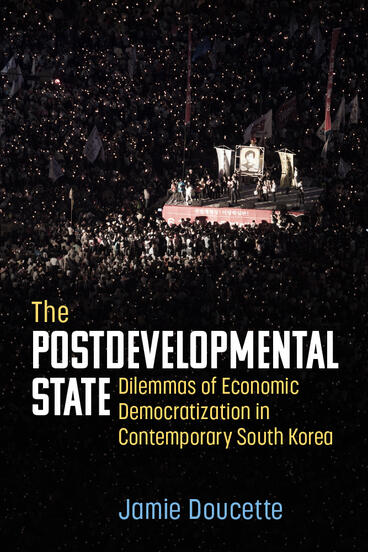The Postdevelopmental State
Dilemmas of Economic Democratization in Contemporary South Korea
Examining the struggle to align high-growth economic models with the egalitarian promises of democracy
Description
Over the last 25 years, South Korea has witnessed growing inequality due to the proliferation of non-standard employment, ballooning household debt, deepening export-dependency, and the growth of super-conglomerates such as Samsung and Hyundai. Combined with declining rates of economic growth and turbulent political events, these processes mark a departure from Korea’s past recognition as a high growth “developmental state.”
The Postdevelopmental State radically reframes research into the South Korean economy by foregrounding the efforts of pro-democratic reformers and social movements in South Korea to create an alternative economic model—one that can address Korea’s legacy of authoritarian economic development during the Cold War and neoliberal restructuring since the Asian Financial Crisis of the late 1990s. Understanding these attempts offers insight into the types of economic reforms that have been enacted since the late 1990s as well as the continued legacy of dictatorship-era politics within the Korean political and legal system. By examining the dilemmas economic democracy has encountered over the past 25 years, from the IMF Crisis to the aftermath of the Candlelight Revolution, the book reveals the enormous and comprehensive challenges involved in addressing the legacy of authoritarian economic models and their neoliberal transformations.
Jamie Doucette is Reader in Human Geography at the University of Manchester.
Reviews
“This is one of the very best books on contemporary South Korean politics and economics that I have read. It is a tremendous contribution to the fields of Korean studies, geography, and economic history. The study is executed with precision; it is thoroughly and ethically researched; and it is theoretically ambitious.”
- Joseph Jonghyun Jeon, University of California, Irvine

